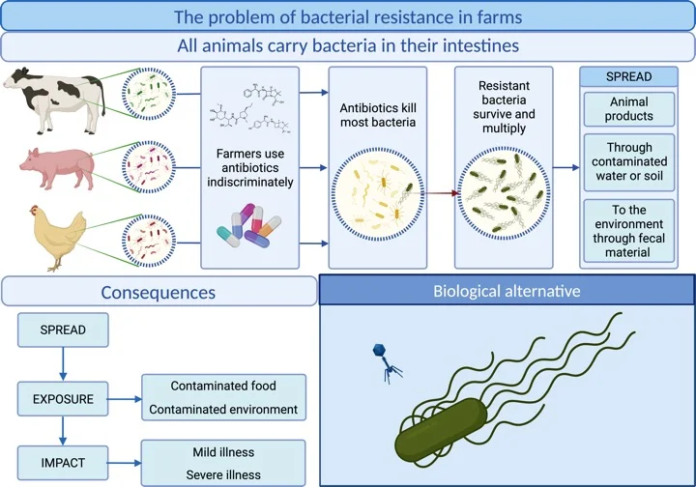The Food Safety and Standards Authority of India (FSSAI) has made a significant move by prohibiting certain antibiotics in animal feed, a decision that aims to combat the rising challenge of antimicrobial resistance (AMR), as highlighted in a recent report.
In October, the FSSAI enacted a ban on specific antibiotics utilized in the production of meat, dairy, poultry, eggs, and aquaculture products.
This restriction on antibiotic use is expected to improve the standards of livestock farming in India.
According to GlobalData, a prominent data and analytics firm, this regulatory action is vital for protecting public health and addressing the escalating issue of AMR, which makes some bacterial infections harder to treat with conventional medications for consumers.
“Given that India is a leading producer and exporter of milk, eggs, fish, and poultry, it is essential to regulate antibiotic use in livestock farming to remain competitive in the global market,” stated Sushmita Bynagari, a consumer analyst at Global Data.
Furthermore, the country must consistently monitor antibiotic use in animal production to ensure the quality of its export products. “This ban on antibiotics in feed for meat and poultry is also in place in countries such as Bangladesh, Sri Lanka, Thailand, Vietnam, and Singapore,” Bynagari noted.
India has pledged to cut down on the use of antimicrobials in animal production by 30-50% by the year 2030.
Indian consumers are increasingly inclined towards healthier options, as evidenced by a recent Global Data survey indicating that 73% of respondents consider well-being a significant factor when purchasing food and beverages.
This change in consumer preferences is fueling the demand for more sustainable and safer food products, according to the report.
“To effectively address the AMR issue, the FSSAI must ensure strict enforcement of the ban on antibiotic use in animal production across the board.”
The Food Safety and Standards Authority of India (FSSAI) has made a significant move by prohibiting certain antibiotics in animal feed, a decision that aims to combat the rising challenge of antimicrobial resistance (AMR), as highlighted in a recent report.
In October, the FSSAI enacted a ban on specific antibiotics utilized in the production of meat, dairy, poultry, eggs, and aquaculture products.
This restriction on antibiotic use is expected to improve the standards of livestock farming in India.
According to Global Data, a prominent data and analytics firm, this regulatory action is vital for protecting public health and addressing the escalating issue of AMR, which makes some bacterial infections harder to treat with conventional medications for consumers.
“Given that India is a leading producer and exporter of milk, eggs, fish, and poultry, it is essential to regulate antibiotic use in livestock farming to remain competitive in the global market,” stated Sushmita Bynagari, a consumer analyst at Global Data.
Furthermore, the country must consistently monitor antibiotic use in animal production to ensure the quality of its export products. “This ban on antibiotics in feed for meat and poultry is also in place in countries such as Bangladesh, Sri Lanka, Thailand, Vietnam, and Singapore,” Bynagari noted.
India has pledged to cut down on the use of antimicrobials in animal production by 30-50% by the year 2030.
Indian consumers are increasingly inclined towards healthier options, as evidenced by a recent GlobalData survey indicating that 73% of respondents consider well-being a significant factor when purchasing food and beverages.
This change in consumer preferences is fueling the demand for more sustainable and safer food products, according to the report.
“To effectively address the AMR issue, the FSSAI must ensure strict enforcement of the ban on antibiotic use in animal production across the board.”















